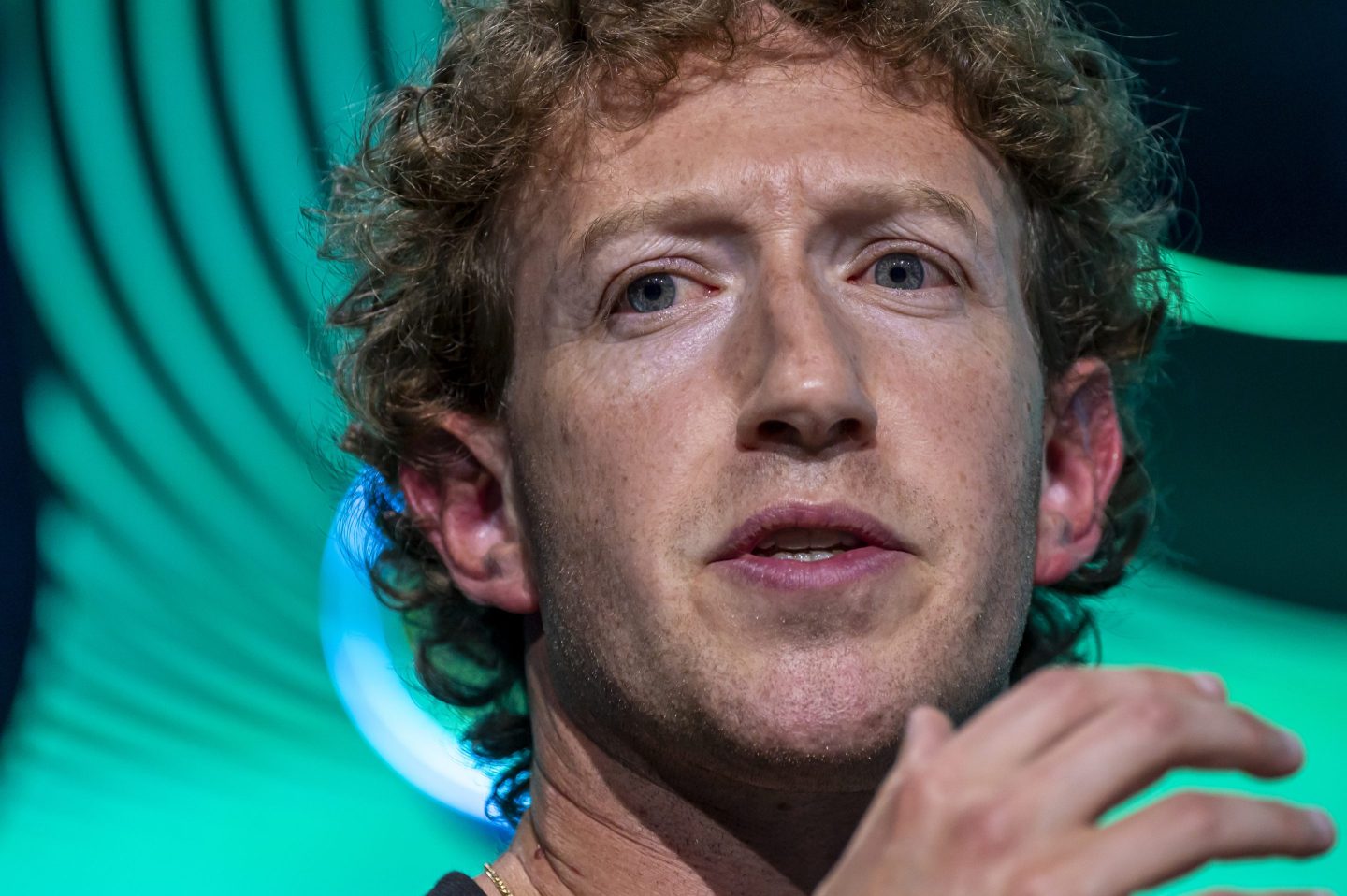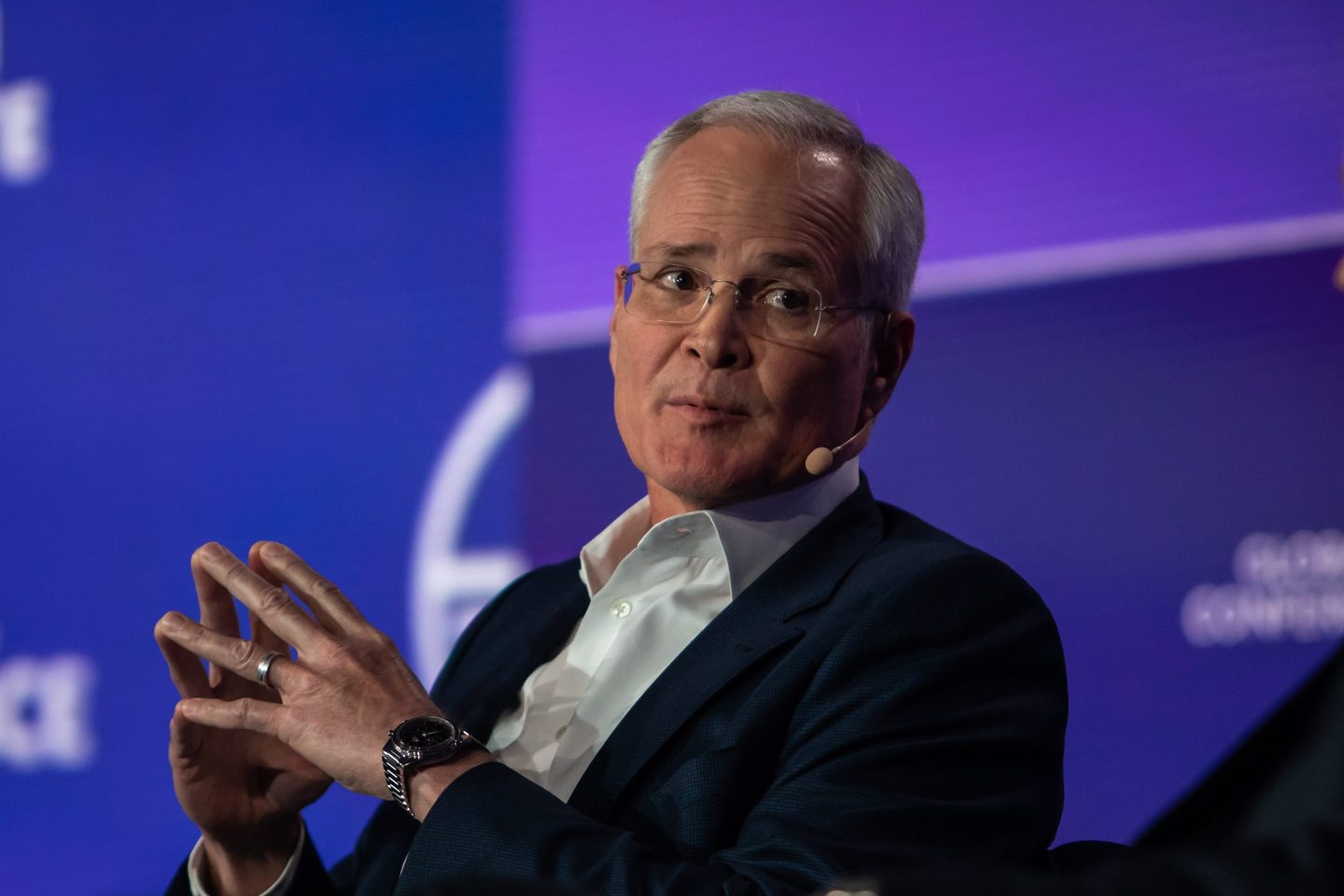I started hearing it years ago: “We’re actually a technology company with [fill in the blank],” CEOs of every kind of business were saying. “We’re actually a technology company with wings,” United Continental CEO Jeff Smisek told me in 2011. Others were running “a tech company with wheels,” “with rails,” “with refineries,” “with stores.” And they were all correct.
This morning, we’re surrounded by new evidence that leaders in every discipline are actually in the tech business. Jeff Immelt’s GE yesterday announced a new business that will analyze massive amounts of data generated by industrial machines—GE’s or anyone else’s—anywhere in the world, predicting and improving their performance. GE is aggressively repositioning itself as an industrial company, but now that encompasses predictive analytics software. Its competitors include IBM and Google.
Travis Kalanick’s Uber announced yesterday it’s losing money, but investors don’t care; they value the company at $50 billion or more. Leaders of every taxi and limo company in the U.S., and soon the world, are running tech companies now. Defense Secretary Ash Carter has formed a Defense Innovation Unit in Silicon Valley to learn more about robotics, additive manufacturing, big data analytics, cybersecurity, and more; he knows what business he’s in now. Adidas, the athletic apparel firm being reinvigorated by CEO Herbert Hainer, announced yesterday it’s buying Runtastic. It doesn’t make athletic apparel; it makes apps and hardware for athletes.
Even a coffee company is a technology business: Shares of Keurig Green Mountain, which has built its business on innovative brewing tech, plunged 29% yesterday on weak earnings and outlook. Now much depends on its introduction of a new cold-beverage machine—which, the WSJ reported on Wednesday, “marks a major test of Keurig’s technology skills and Chief Executive Brian Kelley’s effort to position the company for long-term growth.”
Being the leader of a technology enterprise doesn’t demand deep tech skills. Smisek is a lawyer; Immelt came up as a marketer; Hainer majored in economics. (Carter, though, is a theoretical physicist.) It does demand an ability to speak the language of technology and an ability to evaluate people. Most important—and generally most challenging for leaders—is that it demands an ability to imagine what might be possible. Technology’s capability is outrunning our ability to use it.
Strange to say, but fearless imagination is becoming a key competency for leaders of tech-enabled enterprises—which means pretty much all of them.
What We're Reading Today
Uber's not turning a profit
In fact, it's losing a lot of money, including $160 million during the first half of 2014. Travis Kalanick doesn't seem worried. Gawker
General Electric launches an industrial cloud
Named the Predix Cloud, it will target the industrial Internet of Things, such as data from manufacturing gear used in factories, mines, or farms. GE will roll it out to customers in 2016. Fortune
Bill Ackman dips into Oreo's parent company
In a big way. The activist investor grabbed a 7.5% stake in Mondelez, which also makes Cadbury chocolates and Trident gum, with a $5.5 billion investment. Mondelez stock jumped 5% after the news, but Ackman could encourage it to sell to another food maker, like Kraft Heinz. Financial Times
In the lead to win the $10 bill spot
Eleanor Roosevelt is America's favorite choice, according to a new survey, followed by Harriet Tubman. Marist
Donald Trump sought advice from an unlikely source
The Republican candidate called Bill Clinton prior to joining the presidential race, although the two did not discuss strategy. Washington Post
Mary Barra joins #ILookLikeAnEngineer movement
The GM CEO is among over 36,000 women who have tweeted using the hashtag. Fortune
The Pentagon wants Silicon Valley
A new initiative dubbed the Defense Innovation Unit looks to bridge the gap between the military and tech companies. It'll be based in Mountain View, Calif., where Google also resides. WSJ
Worth Reading
Higher paid employees bring extra profits
As payroll per employee rises, so does value added per employee, according to new data from the Commerce Department. There was a stronger effect, in particular, for lower-wage employees. MarketWatch
Getting angry costs women $15,000
Based on a recent study, perceptions of women who appear angry in work settings decline precipitously. Perception of angry men only slightly suffered from such outbursts. Fast Company
The impact of the SEC CEO-worker pay ratio rule
Will it have any? We already know certain fields pay employees poorly, but it doesn't stop shoppers. Then again, Americans think the pay gap is in the 30-to-1 range, on average (it's actually around 300-to-1, according to the Economic Policy Institute). Slate
Building a Better Leader
A new trend building
A day after Netflix announced unlimited maternity and paternity leave, Microsoft has given its employees eight additional weeks of time off after they have a child, boosting total paid leave time to 20 weeks at the software company. NYT
Student debt is keeping young entrepreneurs away
It's unlikely the only cause, but the number of businesses started by people under 30 years old has declined since the early 2000s, right around the time when the cost of college took off. Fortune
When it's finally time to quit...
Take this advice and reset your goals before making the leap. Inc.
Up or Out
The music service Spotify is losing one of its longest serving staffers. Chief Content Officer Ken Parks will head to Pluto TV to become its executive chairman. NYT
Cheryl Boone Isaacs earned a third term as president of the Academy of Motion Picture Art & Sciences. Deadline
Johanna Quandt, the matriarch of the Quandt family and largest stakeholder in BMW, passed away at the age of 89. The Mirror
The former owner of the the Los Angeles Clippers and real estate mogul Donald Sterling has filed for divorce from his wife Shelly two weeks shy of their 60th anniversary. He's currently suing his wife and the NBA in federal court over the sale of the Clippers. ESPN
Fortune Reads
Facebook tweaks ad strategy
To attract more small and medium size business owners, Facebook altered ads so users can send a message to the company directly. Luckily for business owners, Mark Zuckerberg's company also installed ways to handle the deluge. Fortune
Jon Stewart signs off tonight
After his last episode of The Daily Show in his 16-year run, Stewart will leave many millennials traversing a presidential election without his commentary for the first time. Fortune
Ever wonder what it's really like to run a startup?
Kyle Stalzer, CEO of Takk, takes an unusually positive perspective on the experience. Fortune
A $71.3 million loss doesn't worry GoDaddy's CEO
CEO Blake Irving attributes the company's shortfall to costs associated with its April IPO. Fortune
Quote of the Day
"Love what you do. Get good at it. Competence is a rare commodity in this day and age. And let the chips fall where they may." —Jon Stewart, The Daily Show Flavorwire
| Produced by Ryan Derousseau | |
| @ryanderous | |
| powersheet@newsletters.fortune.com |













